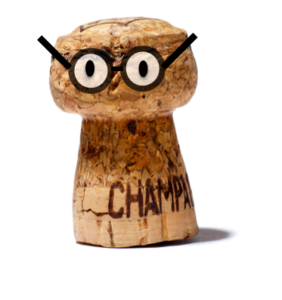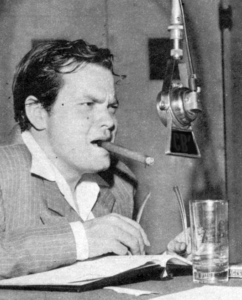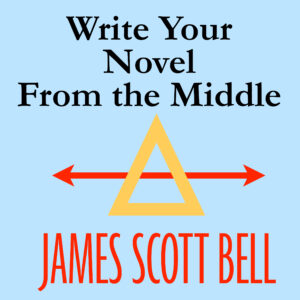by James Scott Bell
@jamesscottbell
(Apologies to Bob Dylan)
 Can you believe we’re into November already? Why does time feel like a toboggan on Kiwi Flats at Mammoth Mountain? Things are also moving faster than ever in the world of publishing, both self and traditional. And now we’ve got AI out there, churning out subpar fiction that crowds the electronic shelves. (I’m currently reading the letters of Raymond Chandler. Get this. In 1947 he wrote to an editor, “I wrote you once in a mood of rough sarcasm that the technique of fiction had become so highly standardized that one of these days a machine would write novels.” Ha!)
Can you believe we’re into November already? Why does time feel like a toboggan on Kiwi Flats at Mammoth Mountain? Things are also moving faster than ever in the world of publishing, both self and traditional. And now we’ve got AI out there, churning out subpar fiction that crowds the electronic shelves. (I’m currently reading the letters of Raymond Chandler. Get this. In 1947 he wrote to an editor, “I wrote you once in a mood of rough sarcasm that the technique of fiction had become so highly standardized that one of these days a machine would write novels.” Ha!)
Wherever you are in this game, be ye DIY or working with agents and publishers, you have to think of it as a business. Indeed, as a business that may not look the same six months from now. In that regard, here are a few items that recently caught my eye:
Kindle Direct Publishing Beta Testing AI–Narrated Audiobooks
The biggest barrier keeping self-publishing authors from doing audio versions of their books is cost. To hire a narrator to produce an 80k novel can easily run you north of $3000. An alternative is Amazon’s ACX program, which offers the option of splitting the royalties between author and narrator, and thus no upfront cost to the author (but only half the take).
Now comes another option. According to Publishers Weekly:
KDP has announced that it has begun a beta test on technology allowing KDP authors to produce audiobook versions of their e-books using virtual voice narration. The ability to create an audiobook using synthetic speech technology is likely to result in a boom in the number of audiobooks produced by KDP authors. According to an Amazon spokesperson, currently only 4% of titles self-published through KDP have an audiobook available.
Under the new initiative, authors can choose one of their eligible e-books already on the KDP platform, then sample voices, preview the work, and customize the audiobook. After publication, audiobooks will be live within 72 hours, and will distributed wherever Audible titles are sold. Prices can be set between $3.99 and $14.99 and authors will receive a 40% royalty. All audiobooks created by virtual voice, the post says, will be clearly labeled and, as with any audiobook, customers can listen to samples.
I suppose this was inevitable. The question is, what will the quality be? Will books be better or botter? Can a bot read a novel with the same emotional caliber as a human? Will there be market resistance from a large swath of audiobook fans?
In somewhat related news:
Debbie Burke’s Nightmare Becomes Real
The head coach of the Michigan football team, Jim Harbaugh, is being accused of cheating, specifically sending one of his assistants out to steal the signs of opposing teams. He has denied the allegations and the NCAA is currently investigating.
But now a video has surfaced on X (formerly Twitter) of Harbaugh in a press conference admitting he knew, and that “I’m just doing what I can to drag this sorry program out of the mud.”
It’s Harbaugh’s “voice” matched up with his lips from another presser. It’s obviously a fake, because the real Harbaugh would never say anything like the above. Most commenters get the “joke,” but no doubt many will think he really said it. It’s just eerie what can be done with AI, and from now on our thrillers will have to take it into account.
Authors Guild Survey of Writing Income
The Authors Guild recently conducted its most comprehensive author income survey to date. According to the Guild: “A total of 5,699 published author participated, and the survey sample was meticulously divided, with representation from both traditionally published and self-published authors, making it the most representative author income survey to date as well.”
Only key takeaways are available as of this writing (posted on the site linked above). Here’s the one about income
The median author income for full-time authors from their books was $10,000 in 2022, and their total median earnings from their book and other author-related income combined was $20,000. Book income includes advances, royalties, and fees from licensing and subsidiary rights. Other author-related income includes work such as editing, blogging, teaching, speaking, book coaching, copy writing and journalism.
***
This means half of all full-time authors continue to earn below minimum wage in many states from all their writing related work, and well below the federal minimum wage of just $7.25/hour from their books. It also tells us that most authors are earning half of their writing-related income from sources other than their books.
Now, I’m not sure what definition of “full-time author” is being used here. It can’t mean authors who make their living solely by writing fiction because, kids, who can live on ten grand a year? They are also including “other author-related income” such as editing, teaching, etc. But if you’re editing and teaching to make money, how is that being a full-time writer? Or maybe I’m missing something. It wouldn’t be the first time.
There’s a marketing segment to the survey. It should come as no surprise that the most effective marketing tools reported by the respondents were: Kindle Unlimited, ebook discount programs (e.g., BookBub), and an email list. One curious nugget about KU: “Kindle Unlimited was particularly effective for self-published authors, who earned 67 percent more book income from the platform than traditionally published authors make on book-earnings alone.”
Amazon Sues Scammers Targeting Authors
Amazon announced last month that it has filed a lawsuit in the Northern District of California against 20 individuals “scamming authors by falsely claiming an affiliation with Amazon Publishing and Kindle Direct Publishing. According to the suit, the scammers run fake Amazon knockoff websites designed to lure would-be authors into paying a fee to publish, and then deliver either substandard or no service at all.”
Dealing with scammers is like playing 100-hole whack-a-mole. At least you pound one every now and then. Glad to see Amazon stepping up.
Goodreads Taking Steps Against “Review Bombing”
In June, bestselling author Elizabeth Gilbert (Eat, Pray, Love) pulled her novel, The Snow Bird, which was slated to be published in 2024. The reason: “Review bombing.” That is a spate of 1-star negative comments meant to depress sales. It’s not based on the writing, but for political or cultural reasons. Goodreads allows any user to rate and review a book before it has been published, whether or not they’ve read an advanced copy.
The Snow Birds is set in Soviet Russia. Based only on the description, over 500 negative reviews from Ukrainian and pro-Ukrainian users expressed concern that the book would “romanticize” Russia. So Gilbert pulled the book, stating, “I do not want to add any harm to a group of people who have already experienced – and who are all continuing to experience – grievous and extreme harm.” She will now focus on other literary projects.
Goodreads issued a statement to its users saying, in part,
Earlier this year, we launched the ability to temporarily limit submission of ratings and reviews on a book during times of unusual activity that violate our guidelines, including instances of “review bombing.” If you see content or behavior that does not meet our reviews or community guidelines, we encourage you to report it.
Isn’t the simple answer to require a reviewer to be a “verified purchaser” or at least be identified as having read the ARC before posting a review? Or does that make too much sense?
Meanwhile, At the Big 5
Jane Friedman of The Hot Sheet (subscription required), spent two hours talking with Peter Hildick-Smith, who helped the Guild conduct their survey. She concludes:
Finally, the survey results look sobering for anyone with a Big Five house: Earnings have declined for those authors over the last five years at the rate of inflation. The biggest selling authors are seeing their sales soften, which indicates to Hildick-Smith that the big traditional publishers need to think of some new approaches for marketing and promotion. For the top 10 percent of traditionally published authors, he said, “There are a lot of folks out there nipping at your heels, and you’re having to share the winnings a lot more.”
So Be a Cork on the Roiling Sea of Change
 Way back in 2012 I wrote about the “discoverability problem” in the “roiling sea” of digital publishing. Our job is to be a cork, always bobbing right back to the surface, no matter what waves come our way:
Way back in 2012 I wrote about the “discoverability problem” in the “roiling sea” of digital publishing. Our job is to be a cork, always bobbing right back to the surface, no matter what waves come our way:
The good news is there is one tried and true method that is consistent throughout all marketing platforms: good old word of mouth.
Which comes from quality + consistency x time. The best books and stories you can write, and then more, and more, never stopping, ever.
What say you? How are all the changes affecting your work or plans? Are you keeping the main thing (writing) the main thing?



